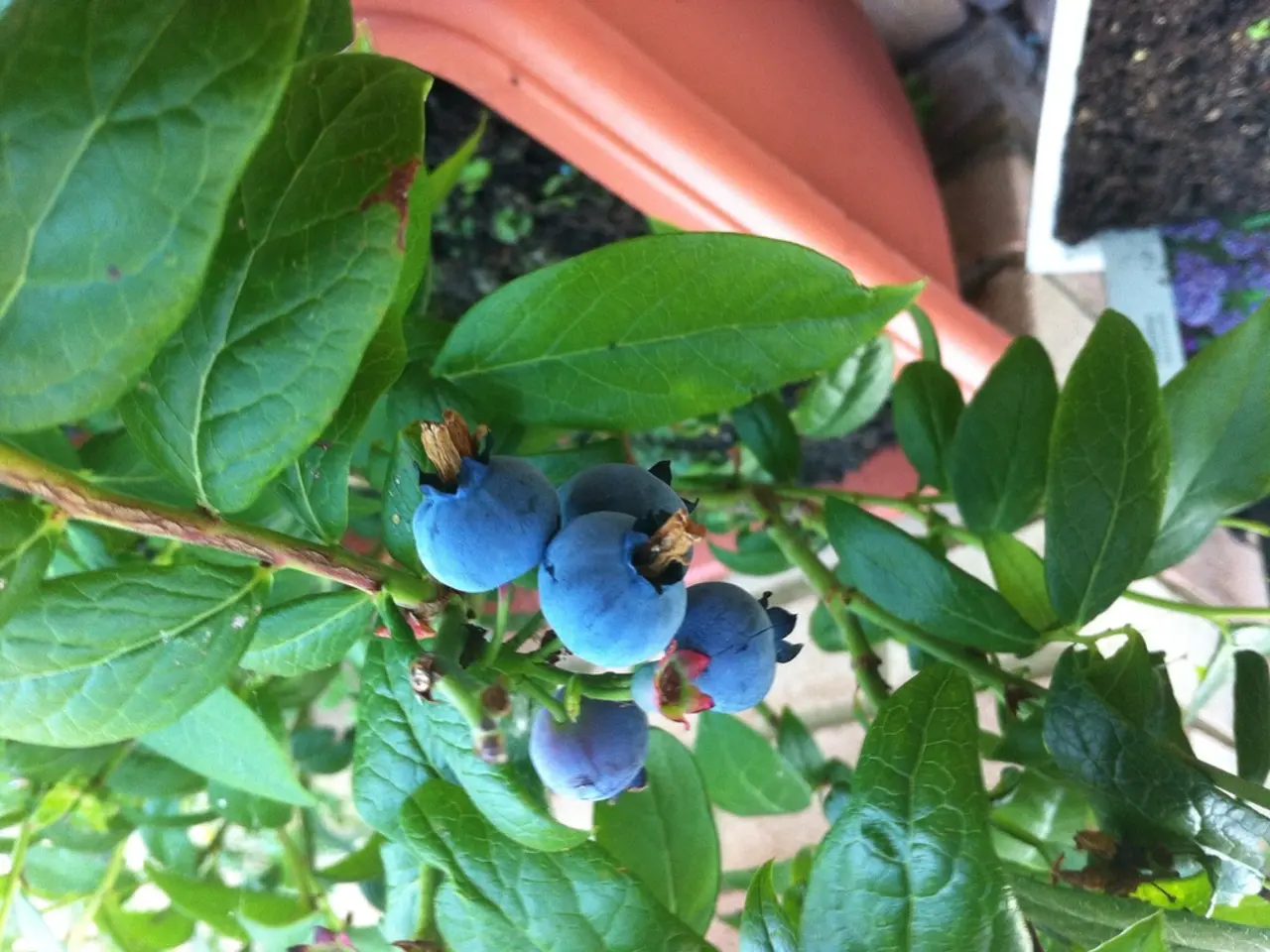Boosting Blueberry Yield: Optimizing Soil Composition for Best Results
Organic blueberry farming requires careful management of soil acidity to ensure the best growth and yield. One natural method for increasing soil acidity is the use of elemental sulfur.
Elemental sulfur, when incorporated into the soil, is converted by soil bacteria into sulfuric acid, lowering the soil's pH. To effectively use elemental sulfur, it should be mixed thoroughly with the planting area or lightly incorporated into the soil and watered in well. However, fall and winter applications are not advisable due to bacteria inactivity during these seasons. The speed of this process depends on soil temperature and moisture levels, with bacteria most active above 55°F (13°C).
It's essential to note that the process of sulfur oxidation is a biological one, relying on microbial activity. This means that the speed of soil acidification can vary depending on soil conditions. A minimum of six months is recommended, while one to two years is more ideal for significant changes in soil pH.
In contrast, other options like Ammonium Sulfate may lower soil pH more quickly.
In addition to elemental sulfur, other organic fertilisers such as blood meal and cottonseed meal work well for organic blueberries. However, it's important to avoid certain ingredients like too much manure or wood ash, as these can raise the pH.
Mushroom compost, while rich in nutrients, often contains high levels of salt, which can be harmful to plants. Similarly, compost with a high pH can be detrimental to blueberries. Therefore, it's crucial to choose compost carefully and avoid options with high salt or pH content.
For those seeking alternative methods to lower soil pH, products like coffee grounds, specialized acidic fertilizers, or soil amendments containing humic acids or vinegar can be used. These options are suitable for acid-loving plants such as blueberries.
Regular monitoring of soil pH is crucial during this time to ensure the desired level of acidity is achieved. By following these guidelines, organic blueberry farmers can create the optimal environment for their crops to thrive.








